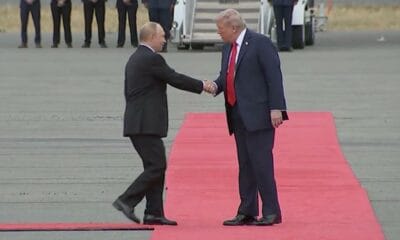National Security
Germany’s Defense Budget Shortfall: A Wake-Up Call for NATO’s Future Security
Europe’s economic juggernaut, Germany, is facing scrutiny for its inability to meet NATO’s defense spending targets, according to a report by the German news outlet Bild. As the continent’s most powerful economy, its failure to allocate the required 2% of GDP to defense raises questions about its commitment to shared security responsibilities. The country’s military budget for 2025, set at a mere €52 billion ($56.9 billion), falls short of this goal, with operational costs consuming the lion’s share and leaving little room for investment in new weaponry.
The Bundeswehr’s aspirations, such as stationing a brigade in Lithuania and acquiring new Eurofighter combat aircraft, are jeopardized by this financial shortfall. Experts estimate that an additional €6 billion is needed for Germany to fulfill its NATO obligations and fund these projects. Yet, efforts to increase the military budget have hit a dead end, with Finance Minister Christian Lindner’s proposal to cut social services to finance defense spending being outright rejected.
Americans Need An ‘Honest Examination of the Pentagon’s Budget’
This persistent underfunding has led to criticism from other NATO members, who argue that Germany’s reluctance to meet its commitments forces the United States and other allies to shoulder the burden of the alliance’s costly operations. Former US President Donald Trump has been vocal in demanding that all European NATO members, including Germany, pay their fair share. They’re not paying their bills,” Trump has said, highlighting the imbalance in contributions and calling for a more equitable distribution of the financial load.
As Germany grapples with the challenge of balancing its defense responsibilities with social priorities, the skepticism surrounding its role in NATO continues to grow. The question remains: will Germany step up to meet its obligations, or will it continue to rely on the United States to fork out the bulk of the alliance’s budget?























